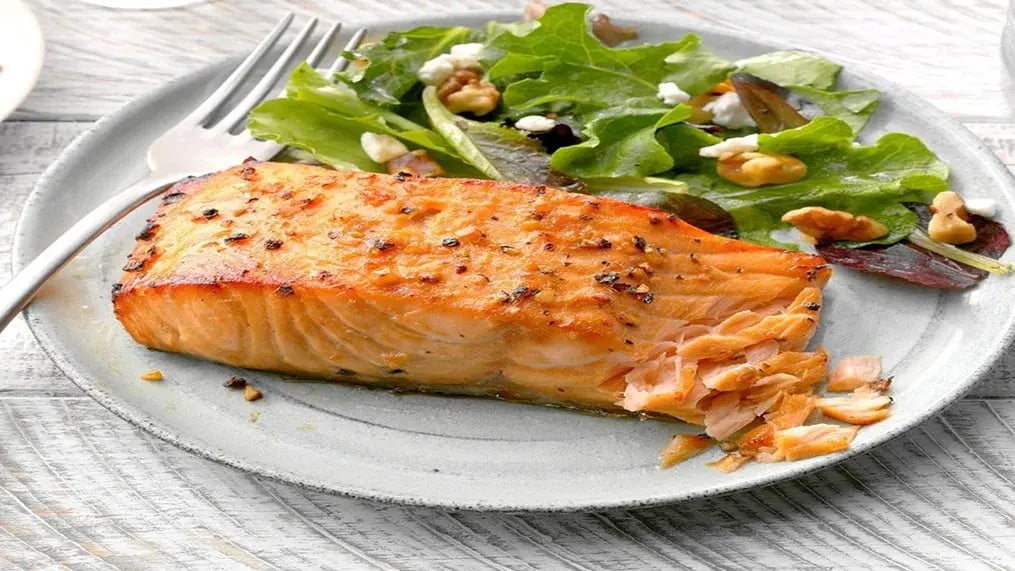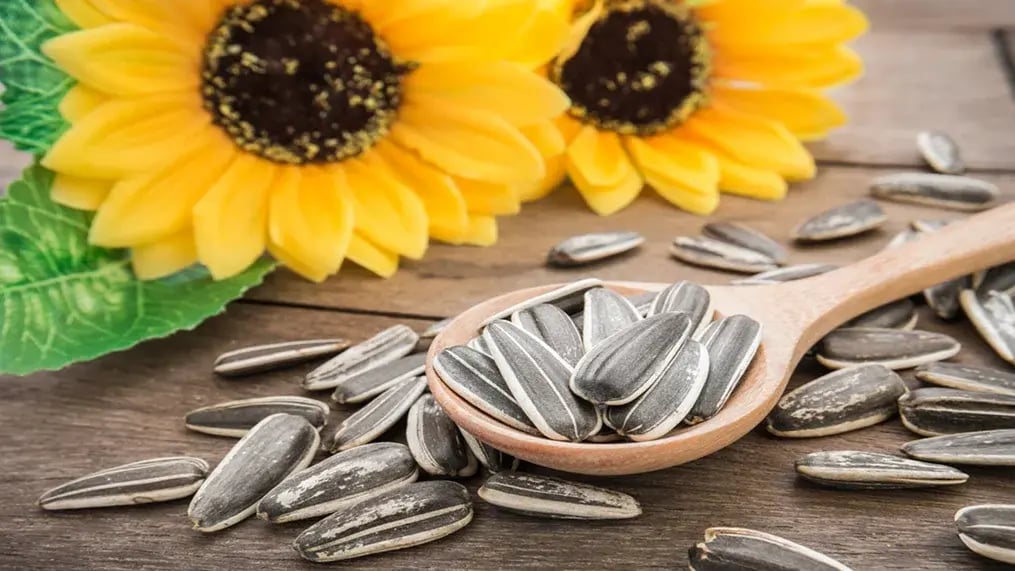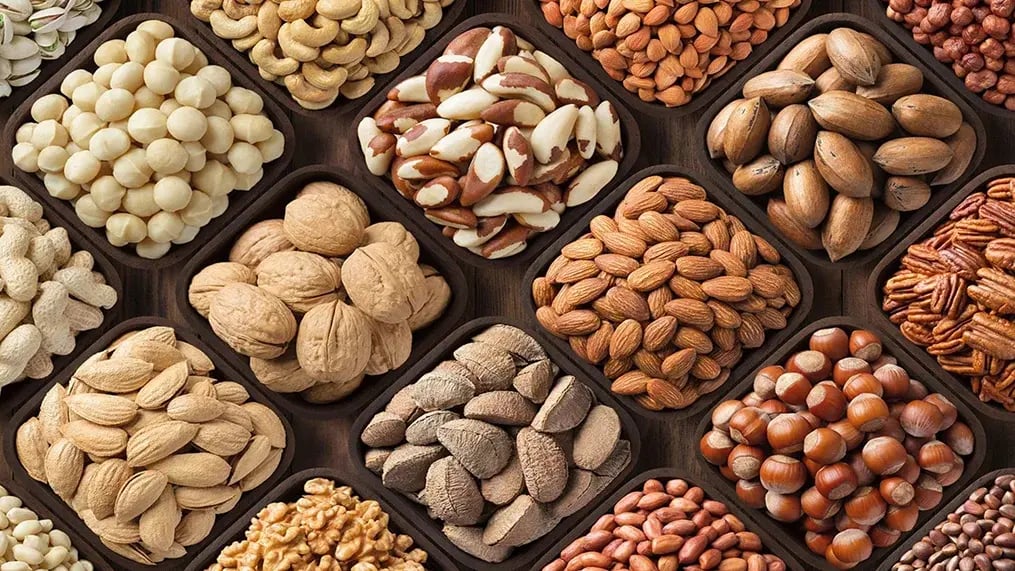- Salmon
- Brown Rice
- Sunflower Seeds
- Green Peas
- Beans And Lentils
- Yogurt
- Nuts
Vitamin B1 or thiamine, is the first of the 8 essential B vitamins in terms of discovery. All the B vitamins help convert food into fuel, help metabolize fats and protein, and improve brain and nervous system functioning. All B-complex vitamins are water-soluble as well. However, this means that very small amounts of these vitamins are stored in the liver, and their levels must be replete daily in children via food to avoid the risk of deficiency.
Thiamine is found in plants and animals and is crucial to human bodily functions. The human body needs thiamine or vitamin B1 to generate and provide energy at a cellular level. It also needs the vitamin for certain metabolic reactions. Therefore, it is essential to fulfill your children’s vitamin B1 requirement daily by incorporating rich sources into their diet. Here is a list of all the vitamin B1-rich foods you should know to enrich your kid’s diet.
Vitamin B1-Rich Foods To Add To Your Kids’ Diet
1. Salmon

Salmon is an essential source of all the B vitamins, along with vitamin A, calcium, iron, magnesium, potassium, and selenium. Since salmon is also rich in protein and healthy fats, it is an excellent source of vitamin B1 for your kid despite ranking low in calories. Grill or roast your salmon with some citrusy, herby marinade and pair it with roasted vegetables for a nutritious and filling meal.
2. Brown Rice
Brown rice is a wonderful source of multiple B vitamins, like B1, B2, B3, and B6, as well as E, K, and folate. It is a more nutritious carbohydrate source than plain white rice, as it also offers several essential minerals like sodium, copper, zinc, selenium, calcium, and iron, among others. Try to use brown rice more in your household instead of white rice and see the improvements in health and energy.
3. Sunflower Seeds

Sunflower seeds are a powerhouse of nutrients despite their minuscule size. Since the seeds already provide vitamins B2, B3, B6, C, E, and K, being a rich source of the first B vitamin should be no big surprise. Additionally, they also offer decent amounts of beta-carotene, phosphorus, potassium, magnesium, and copper. Try incorporating sunflower seeds into your kids’ diet with trail mixes, homemade granola, salads, or as a mildly seasoned and roasted evening snack.
4. Green Peas
Green Peas are one of the best sources of vitamins and minerals, providing everything from beta-carotene to multiple vitamins, like B1, B2, B3, E, and K. With many essential minerals and antioxidants, green peas are a nutritious and versatile source of vitamin B1 that can be used in almost any savory dish, curry, stew, stir fry, or bake. You can keep fresh peas properly sealed in your freezer for months and use them daily to naturally increase your kid’s vitamin B1 levels.
5. Beans And Lentils
Beans and lentils like kidney beans, black beans, mung beans, mung dal, masoor dal, urad dal, and more are great sources of B, C, E, and K vitamins. Since they already are a daily diet staple of Indians as curries and dals, all you need to do is involve your kid in cooking and casually explain the merits of lentils and beans as fun facts. Children are smart enough to consume healthy dishes that taste good if explained well.
6. Yogurt
Rich in protein and healthy fats, yogurt is another Indian household staple consumed by kids and adults alike in various dishes and beverages. Full of thiamine, magnesium, cobalamin, calcium, magnesium, and iron, yogurt can be used to make lassis, fruit parfaits, breakfast banana splits, and chaas to delight your kids and boost their vitamin B1 levels.
7. Nuts

Pistachios, cashew nuts, walnuts, hazelnuts, and almonds are some of the best vitamin B1 or thiamine sources while providing essential healthy fats, protein, fiber, and minerals. Therefore, their versatile selves should be incorporated more into your kid’s diet in trail mixes, overnight oats, homemade granola, salads, and other dishes.
Conclusion
Children need vitamin B1 in their diet for a variety of reasons, and one of the more important ones remains disease prevention. Deficiency of vitamin B1 can lead to weight loss, impaired cognitive and memory function, confusion, muscle weakness, and lowered immunity. A more serious form of thiamine deficiency can also cause beriberi in children. Therefore, keeping your child’s vitamin B1 levels high and incorporating richer sources into their diet is essential. This quick guide will help you with it. Remember, lying and hiding nutritious foods from your kids is no use. Maintain open communication with them and try to play fun made-up games on nutrition to educate them on the merits of vitamin B1 without boring them. Children are more than ready to heed parents who make nourishment fun.
Kaushiki Gangully is a content writing specialist with a passion for children's nutrition, education, and well-being. With more than five years of writing experience and a science-based background, she provides nuanced insights to help families raise happy, healthy kids. Kaushiki believes in making learning and healthy eating fun, empowering parents with practical, easy advice.
The views expressed are that of the expert alone.
The information provided in this content is for informational purposes only and should not be considered a substitute for professional medical advice, diagnosis, or treatment. Always seek the advice of your physician or another qualified healthcare provider before making any significant changes to your diet, exercise, or medication routines.
















